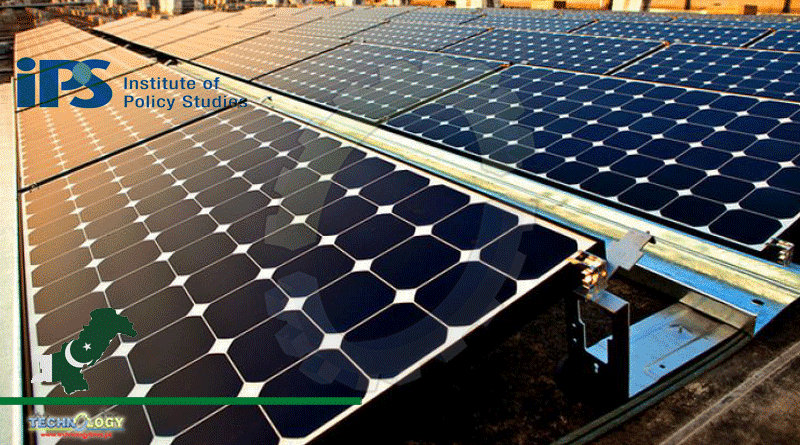Building And Maintaining DISCO Wise Registries On Net-Metering Installations, Which Will Aid Real-Time Communication On Load Profiles

A study conducted and published by Institute of Policy Studies (IPS) titled ‘Barriers and Drivers of Solar Prosumage: A Case-Study of Pakistan’ states that as of November 2020, net-metering installations in Pakistan have reached a cumulative capacity of 148MW, which contrasts very poorly in comparison with other peer regional countries such as India where distributed generation has exceeded 5GW of installed capacity. The study further observes that strong geographic uneven growth exists across the DISCOs in terms of distributed generation uptake where around 70 per cent of growth is concentrated in three major utilities namely IESCO, LESCO and KEL.
Overall, the challenges at inter-connection phase were identified as the dominant challenge to PV (photo-voltaic system) development, which included time lapse in acquiring of three-phase metering equipment at the initial stage, absence of online facility for applications, unavailability of bi-directional meters, and unnecessary delay in processing of the applications at every stage. The cumbersome procedure makes it quite challenging to get the generation license. Further, since DISCOs are playing the primary intermediary in this entire process—playing the role of coordinator between distributed resources—they continue to be reluctant towards distributed generation growth owing to administrative burden of processing applications, perceived fears of revenue losses and integration challenges, etc. Although they are obliged by law to implement the net-metering regulations however currently no accountability mechanism exists which could bind them to do the same.
The report also observes skewed concentration of distributed generation in resourceful sections of society. This skewed concentration is indicated to be rooted in ‘high cost of solar PV installation’ and the interlinked challenge of ‘difficulty in access to borrowing’ for financing the solar PV system. And while State Bank of Pakistan has introduced a scheme for supporting rooftop solar yet its limited adoption by commercial banks continue to restrict borrowing for these installations. In parallel, absence of Fee of Service Models—such as third party investors—again contribute to slow diffusion of solar PV among larger sections of society.
In the context of these challenges, the study emphasizes on specific reform measures which could address the identified challenges. In short term, the registration process needs an urgent overhaul. It needs to be simplified and made more user friendly. An online application portal should be introduced at all DISCOs on priority basis. The applicants should be able to track the progress of their application on the portal. The portal should also have a complaint window—which should be overseen by a third party for unbiased handling and resolution. This oversight authority should also be responsible for ensuring timely issuance of licenses to the applicants as well as taking note of any issues arising during the entire process.
Further, the study also lays strong emphasis on the need to overcome the passive opposition from DISCOs and replace it with appropriate regulations vis-à-vis incentives alongside orientation and trainings skewed in favor of distributed generation growth. Also since diffusion of solar PV in Pakistan is mostly held back by absence of supportive financial policies — due to which people continue to rely on alternative back up energy systems which comparatively have a ‘low upfront cost; and is affordable for larger section of society — the study advocates strong regulations that could leverage diffusion of ‘SBP Financing Scheme for Renewable Energy’ across the commercial banks; and resolves the difficulties in accessing the finance by designing common man-friendly standard procedures.
The study also advocates framing of regulations and focused interventions for facilitating private sector engagement in rooftop solar PV. According to the report, existing rate design/remuneration scheme under net-metering regulations with system caps (wherein in majority DISCOs consumers are not allowed to install solar PV system sizes greater than 1.5 times of their sanctioned load) complements self-generation and encourage small-scale consumers to avail the facility for off-setting grid consumption. In the context, a different tariff design need to be introduced for large-scale investors—which in the case of most countries remain Feed in Tariff. The export rate for this new tariff design could be either pegged to the retail tariff rate or below the retail tariff—to equally incentivize DISCOs and accommodate for grid use charges. A dual tariff regime under net-metering regulation i.e. retaining the existing net billing scheme for prosumers while designing a new tariff arrangement for investors selling all electricity to be exported to the grid—would on its own drive rooftop solar developers in the country. So a combination of designed tariffs scheme will simultaneously promote prosumage as well as advance private sector engagement in on-site generation and overtime introduction of Fee of Service models.
Finally, low tech solutions for grid integration are emphasized for managing system behind the meter which could improve visibility of distributed generation—helping DISCOs in actually knowing what is going on behind the meter. This could be done by building and maintaining DISCO-wise registries on net-metering installations—which will aid real-time communication on load profiles and thus more stabilized integration. Further modern inverters and other technological solutions can provide ancillary services to stabilize the distribution grid (voltage control). These regulations should also be set in national or regional grid codes by utilities or grid operators. It may be mentioned that the report is based on a series of study stages designed under a 10-month project. The study supervised by Naufil Shahrukh, IPS’ General Manager Operation was ably conducted by Naila Saleh, the lead researcher of the project as well as the author of the report, which has been finalized after rigorous rounds of consultations with key policy stakeholders including, but not limited to, NEPRA, AEDB, NEECA, etc.
